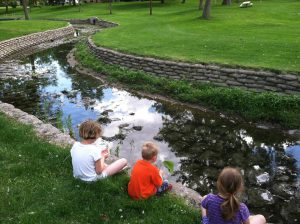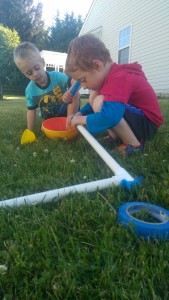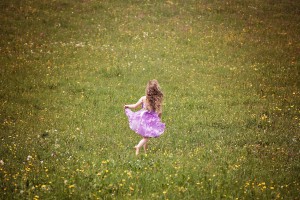 As a birthday present, I took my 5-year-old son for a one-on-one date to the museum today. I surprised him with a 3D viewing of a film on the smallest creatures in the ocean.
As a birthday present, I took my 5-year-old son for a one-on-one date to the museum today. I surprised him with a 3D viewing of a film on the smallest creatures in the ocean.
We were the only people in the giant-screen theater, surrounded by amazing views of sea snails and clams and zooplankton. The end of the film made an appeal for viewers to care about the ocean, citing the accidental release of the lion fish coinciding with overfishing in the Caribbean for how we humans can cause great problems with what we see as minor mistakes.
It hearkened back to a series my children and I watched on National Geographic several months ago, “Racing Extinction,” during which we saw stunning evidence of humankind’s inadvertent effects on our natural world, such as how even a slight change in average sea temperature can decimate entire coral reefs.
I have long had great respect and admiration for nature, made even deeper through my Attachment Parenting (AP) journey. After more than a decade of AP, this way of relating to my children has become my way of relating overall — to other people and to the natural world. I can’t help but want to share that peace beyond my home, and a definite way I try to do this is to nurture my children’s innate curiosity and awe of the natural world.
My oldest daughter has, from the time she could talk, decided she wants to be an entomologist, to find better ways to save endangered pollinator species. My middle daughter has forever wanted to be a wildlife rescuer. And my youngest, my son, wants to save endangered species of birds. I’m excited that my children have the potential to be part of the next generation of problem-solvers in this way.
Naturally, I want to cultivate this interest. We spend a lot of time outdoors. We take the children to nature camps and on hikes in wildlife preserves. We expose them as much as we can to the people who are doing now what the kids want to do when they grow up. They have helped entomologists capture rare insects on disappearing virgin prairie, taken part in a skit on the whooping crane’s perilous migration, learned to identify invasive weeds choking sensitive waterways, done surveys on native bee numbers, and signed petitions to pass laws to better conserve monarch butterfly habitat.
Not that this can’t happen with other childhood interests, but I am a firm believer that being connected with the natural world has far-reaching benefits beyond an appreciation of nature. In this API post from Earth Day, Effie Morchi explains the myriad benefits to healthy child development.
Effie has such a passion for reconnecting children with nature. She recently brought my attention to a great opportunity: All 4th-grade students and their families can get in any U.S. national park for free through the Every Kid in a Park initiative.
I hope as many families can take advantage of this opportunity this year as possible. It’s a way to see our nation’s wildest places and help expand our children’s instinctive desire to connect — and eventually protect — our natural world.




